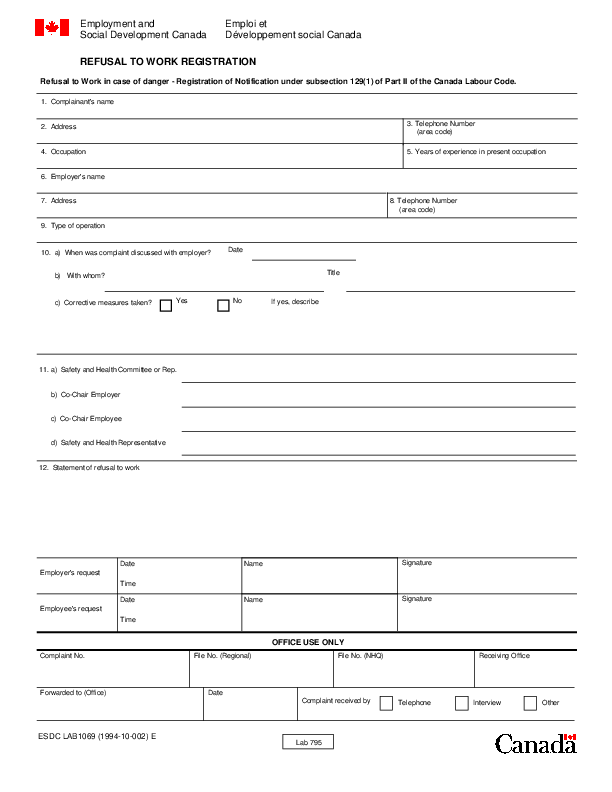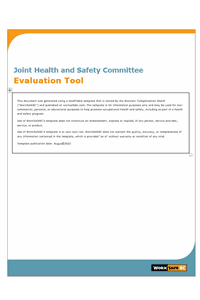Unsafe Work is Never Part of the Job
Your rights and legal obligation to refuse unsafe work.
From unloading trucks with rickety ramps to climbing shaky ladders, labouring in unventilated workspaces to navigating dangerously steep roads on worksites, Canadian workers are seriously injured and die every day in work situations that are clearly not safe.
We all just want to get on with the job. No one wants to make a fuss or be seen as a whiner. We may rationalize acceptance of the situation by thinking it’s just part of the job or it’s not that big of a deal. “I’ll just be careful and stay clear of that drop-off.” “Those worn tires probably have a few more kilometres in them.”
Every worker, however, has both a right and a legal obligation to refuse unsafe work.
B.C.’s Occupational Health and Safety Regulation Part 3: Rights and Responsibilities reads:
“A person must not carry out or cause to be carried out any work…if that person has reasonable cause to believe that to do so would create an undue hazard to the health and safety of any person.”
“Any person” includes you. It’s a curious facet of human nature that many people will brush off risks to themselves that they would take more seriously if someone else was threatened. They tell themselves that they will be careful or they can handle the situation, but that’s not how the law sees it. You, your supervisor, and your fellow workers all have a duty to ensure the safety of everyone in the workplace.
When you believe that your work is not safe, you must immediately report it to the supervisor or employer. If the supervisor’s investigation identifies unsafe conditions, the situation must be remedied without delay. If, after investigating, the supervisor believes the report is not valid, and the worker still refuses on the basis that the work is unsafe, the supervisor must conduct a further inquiry in the presence of the complainant and another worker.
WorkSafeBC provides a toolbox meeting guide covering the process of reporting, as well as the follow-up.
Employers and supervisors should welcome input on safety issues that comes directly from those in the know: the workers on the line. It’s their responsibility to create a “safety-first” culture in the workplace where employees feel supported when they choose to refuse unsafe work. SafetyDriven has two free downloadable posters plus other related resources on their “Right to Refuse Unsafe Work” webpage.
Both workers and employers should be aware that a worker who refuses unsafe work is protected against discipline, reprimands, firing, demotion, pay cuts, and any other form of discrimination. He or she may be temporarily assigned to a new task with no loss in wages.
If you’re still tempted to “tough out” a chancy situation, think about the next employee who may face it. That person may be a young, inexperienced worker, or one who is new to the job and unsure about safety requirements. They might not see the danger or might feel they are not in a position to say anything. You owe it to yourself—and to your workmates—to speak up.
Latest Resources
LAB 1069-Refusal to Work Registration
The Employer’s Investigation Report (LAB1069) is a required form under Part II of t ...
Joint Health and Safety Committee Evaluation Tool
This evaluation tool helps assess the effectiveness of a Joint Health and Safety Comm ...

